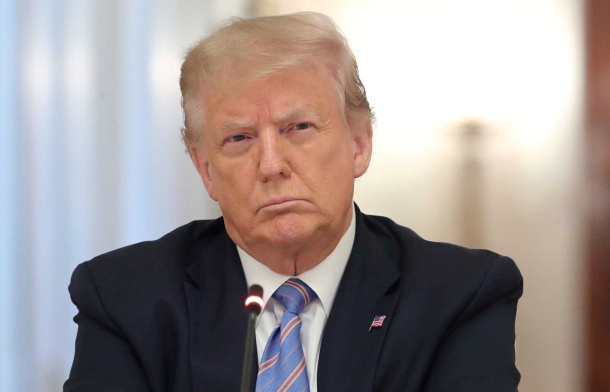Trump's Tariffs Threaten India's Diamond and Jewelry Exports
March 30, 25
(IDEX Online) - India is braced for a hike in US tariffs that could deal a further blow to its already-struggling diamond and jewelry sectors.
Donald Trump's administration has pledged to narrow the gap in duties between the two countries as part of a wider attempt to "restore fairness in U.S. trade relationships and counter non-reciprocal trading arrangements".
India's tariffs on US imports currently average 12 per cent, according to World Trade Organization data, compared with US tariffs on Indian imports of just 2.2 per cent.
There are widespread fears that Trump will match India's 12 per cent, and that he could do it as soon as Wednesday (2 April).
India currently charges 5 per cent duty on imported polished diamonds and 20 per cent on gold, silver and platinum jewelry
By contrast, loose diamonds imported to the US from India are currently zero-rated and gold jewelry is charged at 5.5 per cent to 7 per cent.
Last year the US accounted for over 30 per cent India's total gem and jewelry exports ($11.58 bn) according to the International Trade Commission.
Increased tariffs, on top of weak global demand, falling prices and the impact of lab growns, could cost many jobs and spell the end for many manufacturers.
"A sudden tariff hike could severely impact exports, putting thousands of livelihoods at risk," said Adil Kotwal, president, SEEPZ (special economic zone in Andheri, Mumbai) Gems & Jewellery Manufacturers' Association (SGJMA).
"We urge the Indian government to negotiate for a fair duty structure or consider lowering India's import duty on US jewellery to a more reciprocal level."
Kirit Bhansali, chairman of India's Gem and Jewellery Export Promotion Council (GJEPC), said: "If the US implements a reciprocal tariff policy on India on April 2, India's exports of gems and jewelry — particularly studded gold jewelry and cut and polished diamonds — will be largely impacted.
"We have recently talked with our US counterparts also and asked them to lobby the US government, as a large number of retailers and jobs are dependent on Indian supplies there."